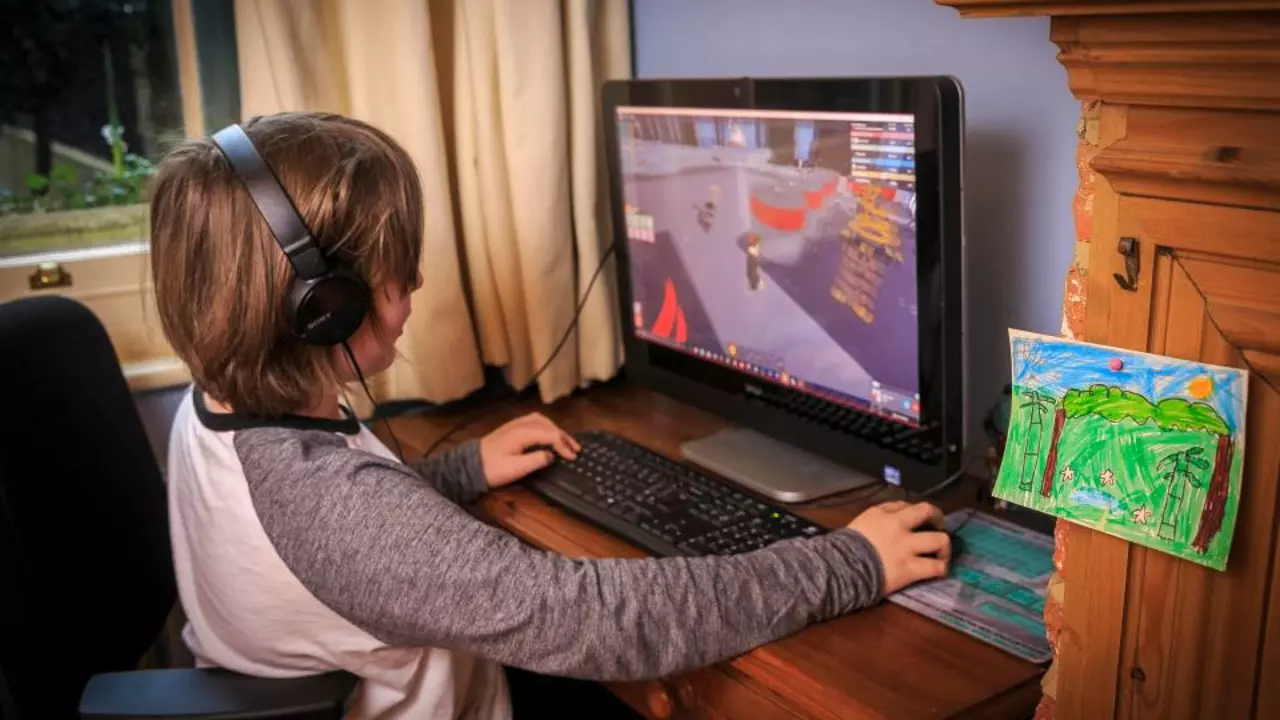The Rationale for Sparing Some Gaming Time
Before jumping on the topic of 'how-to', let's dwell a moment over 'why-to'. You see, as a doting dad myself, my tolerance for the onslaught of digital distractions targeting my son's study time has always been a constant struggle. But somewhere along the line, I started seeing the grey areas. Astor took a step back, scratched my head, squinted at the screen and started wondering about the potential upside of these games.
It's true that unchecked gaming can lead to addiction. However, I've also learned that controlled gaming can foster skill-building. They can improve mental flexibility and multitasking abilities, teach problem-solving, and even inspire creativity. In fact, numerous studies have shown that certain types of games can benefit cognitive development. So, instead of completely blocking games, it becomes a matter of posturing them as rewards, controlling what games they play, and most importantly, limiting their gaming time.
The Technological Lifeline: Understanding Parental Control Tools
Welcome to the golden age of parental guidance in the digital world, an era graced with tools capable of establishing a healthy balance between gaming and grooming for your child. Most of these modern tools are modeled on the age-old principle of "barter system." They offer your children certain hours of playtime in return for specific hours spent studying or accomplishing tasks. For instance, Microsoft Family Safety, Norton Family, and Net Nanny are software I have personally tried and tested.
When you delve into how these tools work, you'll realize these aren't just dumbed-down firewalls. They don't merely police and restrict; they guide and offer flexibility. They can provide daily limits for each day of the week, limit access during certain hours (like bedtime), and also allow parents to control which games, or types of games, can be played.
Initiating the Firewall: Blocking Online Games
Now, suppose your child has an insatiable appetite for online gaming, much like mine does for his mother's chocolate chip cookies. In that case, you might need to take the lead in blocking certain websites. Depending on which browser you use, the steps may vary slightly, but the principle remains the same. If you're a Google Chrome user, you can use an extension like BlockSite to control your child's access to different websites. Here, you can input the URLs of the gaming sites you want to block and set a schedule for when your child can have restricted access.
It's not about being a party-pooper; rather, it's about being a constructive catalyst. As parents, we don't need to block gaming altogether; we need to ensure it's not overtaking their other essential activities. Remember, control doesn't necessarily mean denial.
The Local Lockdown: Blocking Offline Games
When it comes to offline games, the approach is slightly different. Here you're not intercepting the internet traffic, but you're controlling the access right at the source - the files themselves. On Windows, you can set up a local user account for your child, where you can customize what apps and games they can use. With the help of Group Policy or third-party apps, you can even block certain software from running.
Again, the intention here isn't to impose an outright ban, but to limit access and encourage variety. For instance, I've used this to nudge my child to diversify his interest from just first-person shooter games to educational titles. It's indeed a struggle at times, but it's definitely worth the effort.
Words of Caution: The Possible Reaction
While these steps sound simple and effective, don't forget that you're dealing with a generation far more technologically adept than ours. Do not be surprised if your child finds a way to bypass these restrictions at some point. My son once outsmarted me by using a proxy site – I must admit, I was a little proud, but I also had to revise my strategies.
Always remember, the ultimate goal is not to suppress their gaming interest but to ensure it doesn't interfere with their developmental necessities. It's a delicate dance between control and liberty, one that requires both precautions and open conversations. As guardians, we must also guide and discuss the mechanism behind these actions. And who knows, during the process, we might awaken the aspiring coder or ethical hacker in them!
Continuing the Discourse: Remaining Vigilant and Encouraging Balance
Making rules is just the beginning. The challenge lies in maintaining a watchful eye to ensure the rules are heeded. Encourage open dialogue about game time vs. study time dilemma. Use these 'blocks' as teaching moments to impart the importance of self-management, responsibility, and balance. As my own personal journey with my son illustrates, using guides and fences, rather than locks and blocks, has often proved more productive in creating an understanding of moderation and responsible gaming.
So, there you have it, folks. Today, we explored the thin line between the digital gaming maze and the parental safeguard dome. As parents, it's our responsibility to make sure that line doesn't blur. Remember, it's essential to control, guide, and educate rather than block completely. Here's to a future where our children enjoy their games responsibly and excel in their life skills as well!
